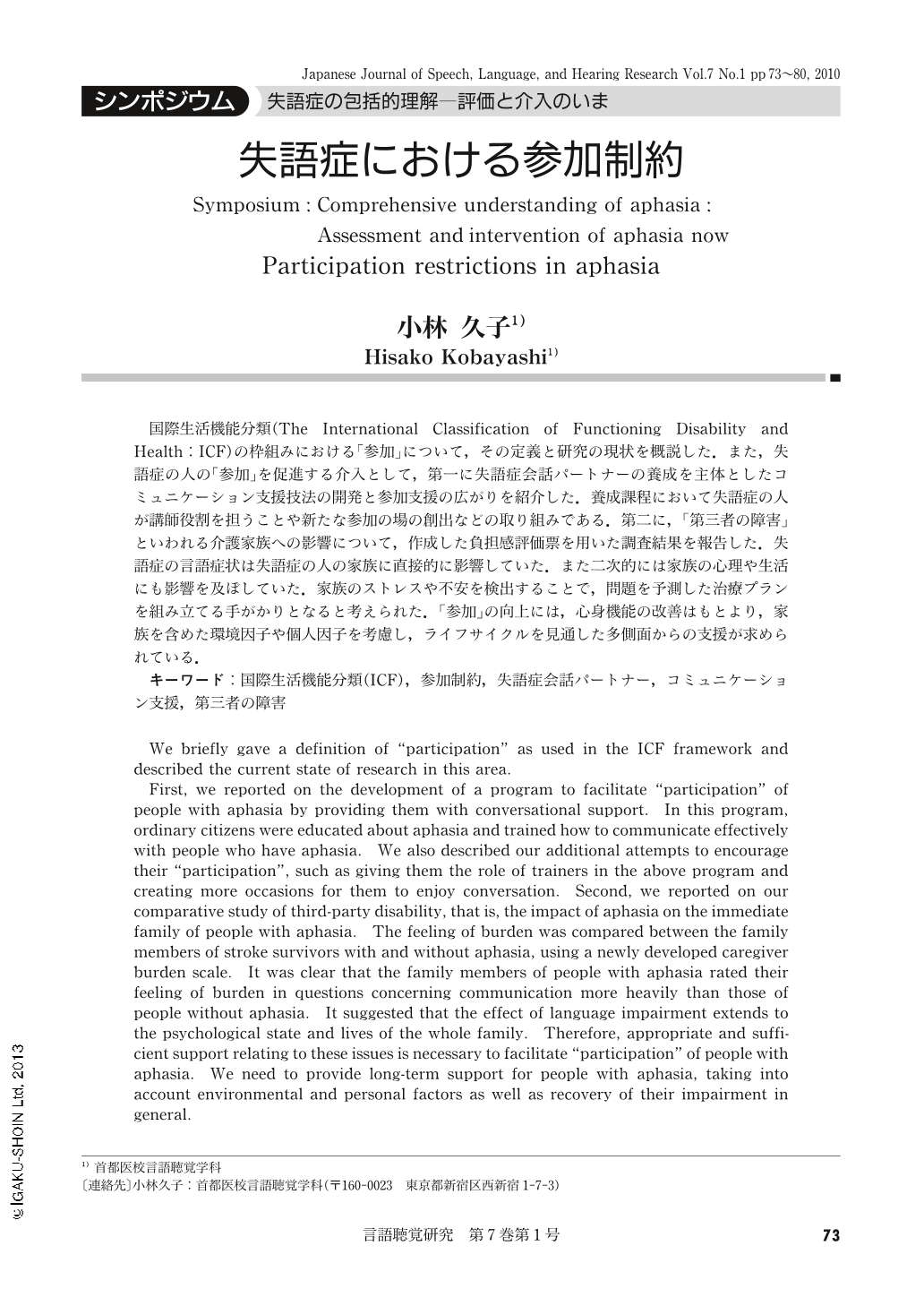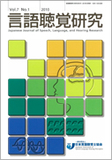Japanese
English
- 有料閲覧
- Abstract 文献概要
- 1ページ目 Look Inside
- 参考文献 Reference
- サイト内被引用 Cited by
国際生活機能分類(The International Classification of Functioning Disability and Health:ICF)の枠組みにおける「参加」について,その定義と研究の現状を概説した.また,失語症の人の「参加」を促進する介入として,第一に失語症会話パートナーの養成を主体としたコミュニケーション支援技法の開発と参加支援の広がりを紹介した.養成課程において失語症の人が講師役割を担うことや新たな参加の場の創出などの取り組みである.第二に,「第三者の障害」といわれる介護家族への影響について,作成した負担感評価票を用いた調査結果を報告した.失語症の言語症状は失語症の人の家族に直接的に影響していた.また二次的には家族の心理や生活にも影響を及ぼしていた.家族のストレスや不安を検出することで,問題を予測した治療プランを組み立てる手がかりとなると考えられた.「参加」の向上には,心身機能の改善はもとより,家族を含めた環境因子や個人因子を考慮し,ライフサイクルを見通した多側面からの支援が求められている.
We briefly gave a definition of "participation" as used in the ICF framework and described the current state of research in this area.
First, we reported on the development of a program to facilitate "participation" of people with aphasia by providing them with conversational support. In this program, ordinary citizens were educated about aphasia and trained how to communicate effectively with people who have aphasia. We also described our additional attempts to encourage their "participation", such as giving them the role of trainers in the above program and creating more occasions for them to enjoy conversation. Second, we reported on our comparative study of third-party disability, that is, the impact of aphasia on the immediate family of people with aphasia. The feeling of burden was compared between the family members of stroke survivors with and without aphasia, using a newly developed caregiver burden scale. It was clear that the family members of people with aphasia rated their feeling of burden in questions concerning communication more heavily than those of people without aphasia. It suggested that the effect of language impairment extends to the psychological state and lives of the whole family. Therefore, appropriate and sufficient support relating to these issues is necessary to facilitate "participation" of people with aphasia. We need to provide long-term support for people with aphasia, taking into account environmental and personal factors as well as recovery of their impairment in general.

Copyright © 2010, Japanese Association of Speech-Language-Hearing Therapists. All rights reserved.


